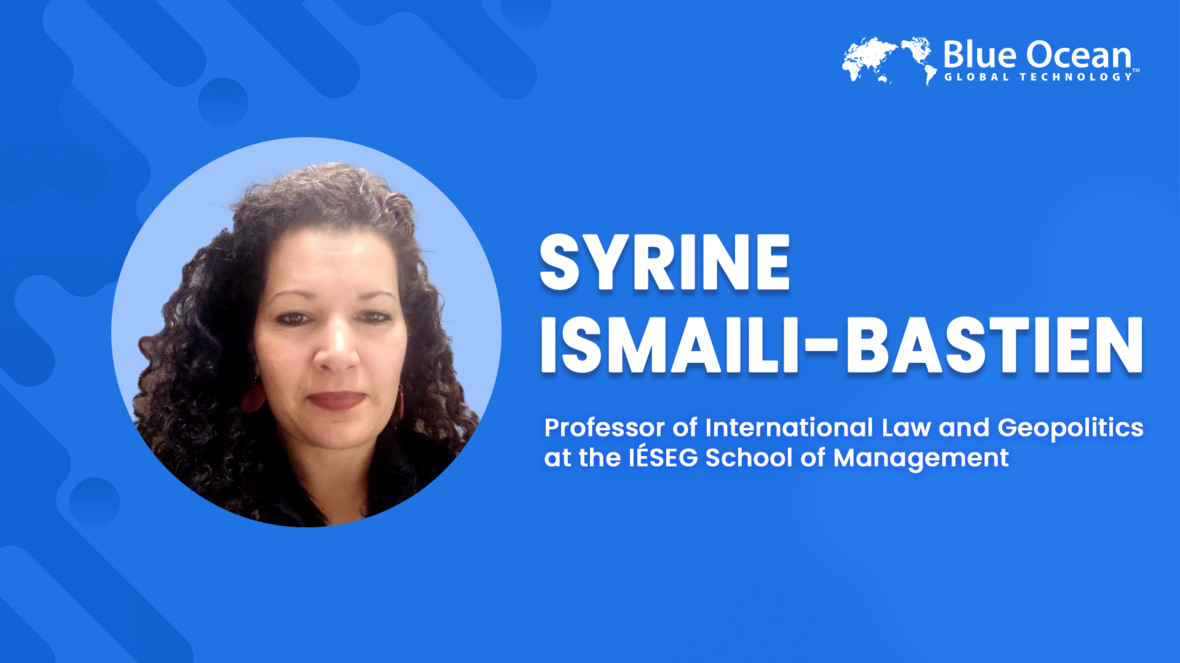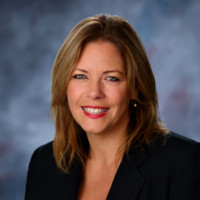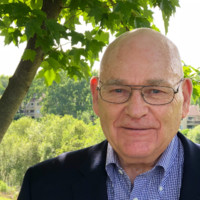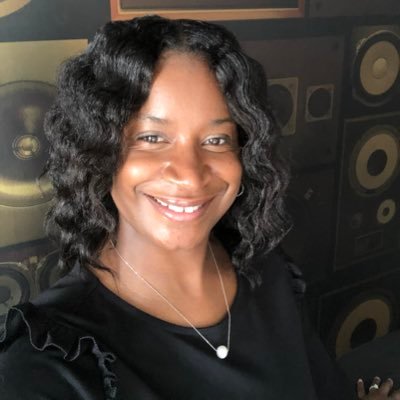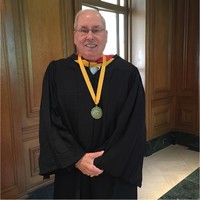Bio
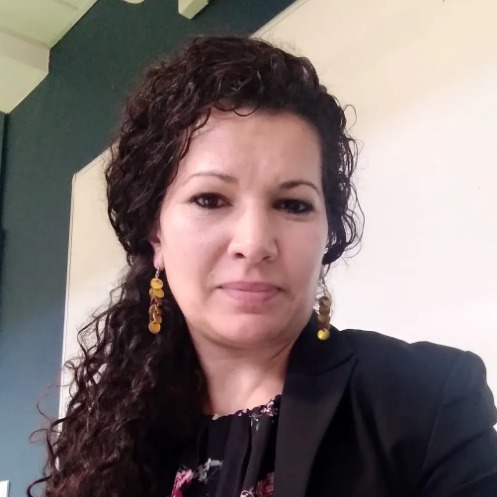
Syrine Ismaili-Bastien is professor at Ieseg School of Management. She teaches: Geopolitics, International Business Law and Environmental Law at graduate and undergraduate levels. Her research interests encompass these issues.
In addition, Syrine Ismaili-Bastien is an advisor who seeks to help companies that want to develop, in Africa in particular, to achieve their objectives. Her consultancy work is mainly about development opportunities and strategies, and legal compliance.
Syrine Ismaili-Bastien graduated with a PhD from the University of Lille (France). She is also a graduate of the University of Artois in France (MA in Maritime and Environment Law) and of the University of Tunis in Tunisia (MA in Law).
Syrine Ismaili-Bastien is fluent in English, French, and Arabic.
About Syrine Ismaili-Bastien
Syrine Ismaili-Bastien has a Phd and Masters in Law with expertise in Environmental Law, Maritime Law, Maritime risk and International Law. She is a Professor of Maritime Law, International Law and International Relations in France, Belgium and Tunisia. She has authored several publications on Geopolitics, International Law and sustainable development.
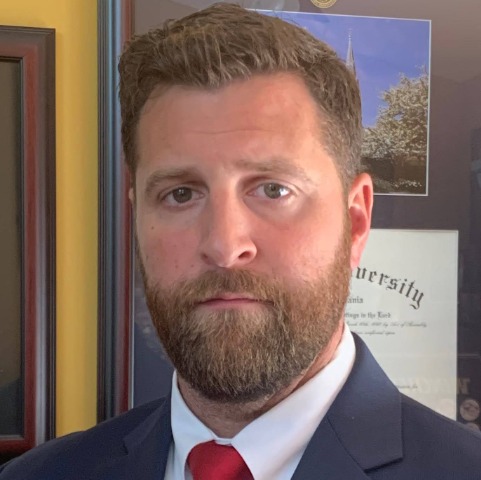
Blue Ocean: Tell us a bit about yourself. Why did you choose to work in this industry?
Syrine Ismaili-Bastien: I am a teacher at the University. I teach Law and Geopolitics at two campuses, one in the North of France and the other in Paris. Sometimes, I am also consulted by some consultancy or government agencies to help them regarding legal or geopolitical issues. To put it in better words, I offer advice on the strategy that the administration or ministry must adopt over the next few years.
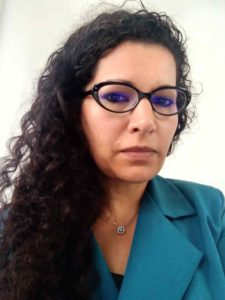
I am actually from Tunisia, in the north of Africa. My professional life started with law after which I pursued a PhD in law. The majority part of my scholarship was concluded here itself. Then I decided to move because I love to meet new people and learn from their cultures. The obvious choice was to move to French-speaking countries because in Tunisia we have French as the second language. English is our third, and it is still my third language. France and Canada were my two options. Although I love Canada, studying in Canada is very expensive, which left me with no choice but to move to France.
I have been living in France for about 20 years now and I love this country. I had to build a whole life in France. I started my career as a teacher in International Law because the relationships and tensions between countries, the importance of cooperation, and the understanding of the reasons behind conflicts interested me. Initially, I was teaching in different universities and schools, like business school and school of engineers. Then one day a member of my hierarchy asked me if I would be interested in teaching Geopolitics because they had to plan a course in the next semester. At that time, I had a very brief idea about it. It was then that I started reading about Geopolitics and it has been 10 years now that it has been a part of my life.
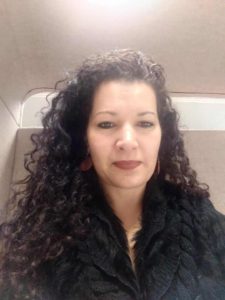
I often tell my students that in Geopolitics, there are two levels of truth. The first level of truth is the one given by national leaders, and in general, it involves only 20 to 30% of the truth. And the second level needs to be explored by digging deeper. Geopolitics helps us to identify the actual motivating factors that guide decisions in the international arena, and this is basically how my journey started.
Blue Ocean: What does a typical day in your life look like?
Syrine Ismaili-Bastien: My usual days are a race against time and I enjoy them because I never get bored. Teaching is not just the final stage of delivering a lecture but involves a lot of backend work. A lot of preparation needs to be done like you need to read every day because Law and Geopolitics are so dynamic and could change any day, and the implications on the international community also change accordingly. International conflicts have implications not merely on peace and security, but also energy prices and supply chain linkages. I also like to watch informative videos and listen to podcasts from interesting people. I usually prefer to commute by public transport because I’m eco-friendly and while on the bus on my way to school I’m usually preparing for my courses.
There is an international public in the University. I have French students but also students from Africa, Brazil, India, Australia, US. So discussing geopolitical issues in class from each country’s perspective is sometimes not possible due to time constraints. Therefore, the discussion continues outside of class, in the corridors, or the cafe. Another important part of my day is discussing with my students. So preparation for courses and discussing with my students takes up a big part of my day.
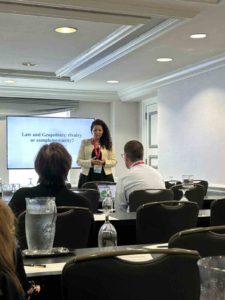
In addition to that, I am a member of an association that tries to help immigrants seeking asylum. There are many people from Syria, Iraq, and Sudan, who arrive in France but don’t speak French and need help in communicating with the French administration. I help them in the communication process.
Also, I’m married and I have two children, a son who is 14 and a daughter who is 8 years old. That means a lot of work at home as well. My daughter is still young so I need to accompany her to school at times and do other Mom duties.
Within International Law and Geopolitics, relations between countries and companies are as important as relations between countries, because today we have large companies that are wielding more power than some of the states. These companies also influence political decision making, hence this topic interests me.
Outside Law and Geopolitics, I love music and I’m a singer. Being on the stage is one of the best places in the world for me. I started my music journey when I was in Tunisia, where I took evening courses in music and also, I hold a diploma in it. I’m a member of this group that tries to harmonize music from the Middle East with Jazz. I like it more than Tunisian music, but it is not a job. It is something that I do when I have time. I perform in concerts whenever I get enough time. During COVID, I didn’t have any concerts, I didn’t play any music and it was very sad. Now I am relieved that we are getting back at it slowly. Apart from that, I love traveling and discovering countries and places.

Blue Ocean: How did you become the best version of yourself ? What underpins your success right now?
Syrine Ismaili-Bastien: I’m not sure if I’m a very successful person to begin with. I feel there are many more successful and interesting people out there and I love interacting with them and learning from them. I even tell my students, especially international students, that I am always learning from them. For example, an Indian student or a Brazilian student will know more about their country.
I feel very satisfied when students find the course interesting and thank me for it. It also pleases me when I finish a consultancy file to help the administration and it gives them a broader political or economic perspective. In my opinion, this is the best reward I can have. I’m constantly trying to improve myself in all domains and I hope that I become one of those successful people. I want to get better and better not just for myself but to help the government and community at large.
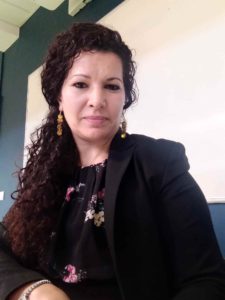
Blue Ocean: Do you think the experiences that you had in your life shaped you into the professional that you are today?
Syrine Ismaili-Bastien: Yes, they shaped me not only professionally but also personally. I am a visiting professor in the Democratic Republic of Congo (DRC), in the middle of Africa. More precisely, in “Etoile” University in Lubumbashi. I go there two weeks a year, in May. It makes me very excited to transfer my knowledge to other people who don’t have the means or the opportunity to acquire it for themselves.
Here’s a very nice story of a Congo-based successful businessman who has never forgotten his roots despite his success. When he was studying in Lubumbashi as a student, it took him a lot of time to reach the school because of the lack of proper transportation, for which he had to wake up early in the morning. This entire process was indeed very tiring and time-consuming. Fast forward to a few years later when he established himself as a successful businessman, he decided to build a university in his home city benefitting thousands of people. He asked me if I could go there and share my knowledge not only with Tunisian or European people but also with the people in Congo, to which I instantly agreed. I have realized that we are seldom very ungrateful in life and we should be thankful for what we have because, in many ways, we are living a better life than many.

Blue Ocean: What is something you are grateful for in your professional or personal life?
Syrine Ismaili-Bastien: I am really grateful for my father. Unfortunately, he passed away in 2016. I believe that your personality is made not just by yourself but from experiences, education, and the environment in which you grow up. Therefore, family plays a big role in shaping our personality. My father was always behind me and always pushed me to do better. For me, excelling in school was not a choice. My father also gave me the freedom to choose what I wanted to do, for example, when I started learning music. Both of my parents were very supportive in my formative years. Personality was more important to my parents than other things.
I am also grateful for my husband because when we married, I was still a PhD student and PhD studies were very long and time-consuming. Also, doing a PhD varies from country to country and school to school. Some places offer financial resources to do research, others do not. In my field, i.e., law, I was not paid to do research, so thanks to the support of my husband, I could complete my PhD.
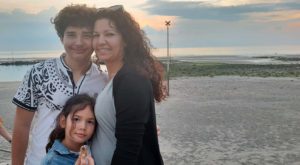
I want to share the story of Bourguiba, the first President of Tunisia after it gained independence in 1956. One of the objectives of Bourguiba when formulating policies for Tunisia was to ensure that women had a special place. He did everything, which at that time would have otherwise been considered revolutionary. He gave Tunisian women equal rights at par with men. So, in a way, I am also grateful to him for being a visionary leader and making education accessible for Tunisian women.
Blue Ocean: What is your opinion as a law professor about the silence of the international community on some law violations around the World?
Syrine Ismaili-Bastien: In my opinion, the world is supposed to be organized as per international law and conventions. But this is not followed strictly unless it is in the interest of the most powerful countries, so it varies from case to case.
Blue Ocean: Can you share a quote that resonates with who you are today?
Syrine Ismaili-Bastien: There is a quote that is in literary Arabic. The essence of the quote is – if you want success and glory, you will have to stay up at night. Simply put, it means that if you want to be successful, you will have to work hard. I remember when I was a teenager, maybe 14 or 15, I had written this quotation down in the best handwriting possible. I also put some flowers on it. I hung it on the wall of my room so that I could see it every day and remember that if you want to do something in your life, you have to simply work hard.
As a teenager mainly, I spent a lot of time with my friends. I wish I had given more time to more serious things and would not have wasted time. So my advice would be to enjoy your life, occasionally get lazy and enjoy with your friends, but not waste time. Manage time well because life is short.
Do you have a personal or professional story that can inspire other people into becoming the best version of themselves?
You are welcome to share your journey with our audience.

